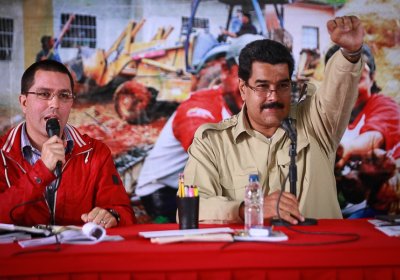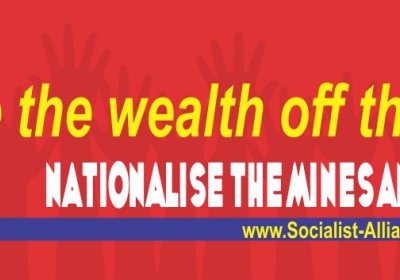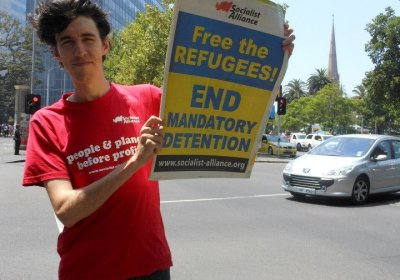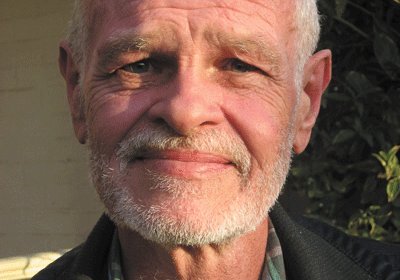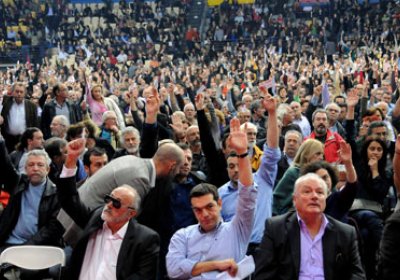The Bracegirdle Incident: How an Australian Communist Ignited Ceylon’s Independence Struggle
Alan Fewster
Arcadia/Australian Scholarly Publishing, 2013
173 pages, $39.95 (pb)
In 1937, Ceylon’s British Chief of Police reported that “it is clearly dangerous” to allow the Australian communist Mark Bracegirdle, to remain in the country “stirring up feelings against employers of labour and against the British Government”.
Socialism
Venezuelan President Nicolas Maduro called on August 15 for his government to give greater support to the construction of communes in the country. He proposed several initiatives by which this could be done.
Communes have their origin in Venezuela's communal councils, which are grassroots bodies made up of members of the local community. These self-managed bodies receive public funds to undertake community projects and small-scale public works.
The Socialist Alliance is using the federal election to popularise the idea that we need bring mines, banks and power companies into democratic public ownership. Here are five reasons why this is a good idea.
1. Wealth distribution
The richest 20% in Australia own more than the rest combined. Mining company profits rose 540% between 2000 and 2009, while the share they paid as tax or royalties dropped from 40% to 14%.
Love & Struggle, My Life in SDS, the Weather Underground & Beyond
By David Gilbert, PM Press, 2012
336 pp, $22.00
From the earliest anti-capitalist revolutions, starting almost as soon as capitalism cemented its political mastery of Europe in the late 1700s, there has been dispute between those whose moral outrage at oppression led them to conspiratorial methods and those saying that open political struggle is superior.
Originally this debate was between the Blanquists and Marxists and later between Bakuninite anarchists and (again) Marxists.
Nicolas Maduro completed his first 100 days since being sworn in as president on July 29 — a period marked by his new street government initiative, Latin American solidarity, and debate over spiked inflation and moderate economic growth.
Maduro’s presidency began amid protest and claims of electoral fraud from Venezuela’s right-wing opposition. They continue to reject the results of the April 14 presidential election in which Maduro won 50.6% of the vote, a 1.6% margin over Henrique Capriles.
Since then, polls have pegged his approval rating around 56%.
Cuban Vice-President Jose Ramon Machado Ventura praised Ecuadorian President Rafael Correa and Venezuelan President Nicolas Maduro on July 31 for their fight against US imperialism.
Machado said greater Latin American integration was aiding development across the region during the closing session of the 12th summit of the Bolivarian Alliance for the Peoples of Our America (ALBA) in Ecuador. But he stressed that social movements should lead the charge.
Julia Hocken interviewed 25-year-old Liam Flenady who is running as the Socialist Alliance candidate in the seat of Griffith, held by Prime Minister Kevin Rudd.
***
When did you first decide to become an activist and to join Socialist Alliance?
I became politically active around 2010, so not very long ago. Prior to that I had followed political issues, and like many people pricked up my ears around election time.
Doug Lorimer, a life-long committed revolutionary, died on July 21 in Sydney after a year of fighting deteriorating ill health and long term hospitalisation.
Lorimer was born April 17, 1953 in Dundee in Scotland and migrated to Australia with his parents Connie and Bill when he was four years old to settle in the South Australian steel town of Whyalla.
Lorimer radicalised as a high school student. He first became involved in left politics through the Australian movement against the imperialist war in Vietnam, when he and his mother joined the moratorium marches in Adelaide in 1970.
Roger Burbach, the co-author of Latin America's Turbulent Transitions: The Future of 21st Century Socialism, wrote this open letter to NSA whistleblower Edward Snowden on July 15. It first appeared at www.futuresocialism.com -- where you can also order the book.
* * *
Pedro Filipe Soares is a Left Bloc MP in the Portuguese parliament. Soares attend the first congress of the Coalition of the Radical Left (Syriza) from July 10-14. Syriza, a coalition of left groups, decided to become a new political party after it came close to winning elections on an anti-austerity platform last year. The article was translated by Dick Nichols.
* * *
It is now depressingly clear for all to see that whether Liberal or Labor win the coming Australian federal election, we are going to end up with a government that is more right-wing than the last.
How did it come to this? And how can we escape the political spiral to a moral abyss?
The politicians in the ALP and in the Liberal-Nationals who have shaped this latest reactionary turn in the spiral — most notably around attacks on refugee rights and climate change — cannot be let off the hook.
The capacity of the Turkish revolutionary left to help lead a mass revolt has been tested during the past month of the Gezi protests.
They are now calling it “the Great June Resistance”. The left clearly feel lighter, refreshed. Their spirit is higher than it has been for decades. And most importantly, they have a direction to grasp. The path forward is clear.
A united people’s struggle for revolution has been the dream of Turkey's left for more than four decades. Finally they have experienced a real united mass peoples movement.
- Previous page
- Page 79
- Next page
